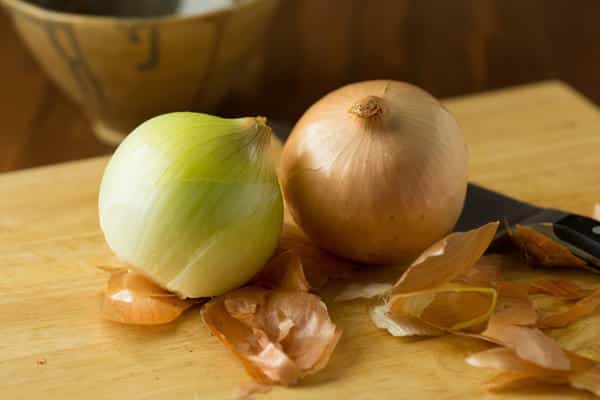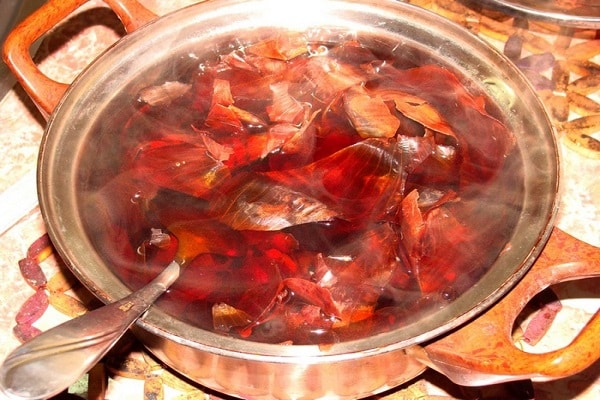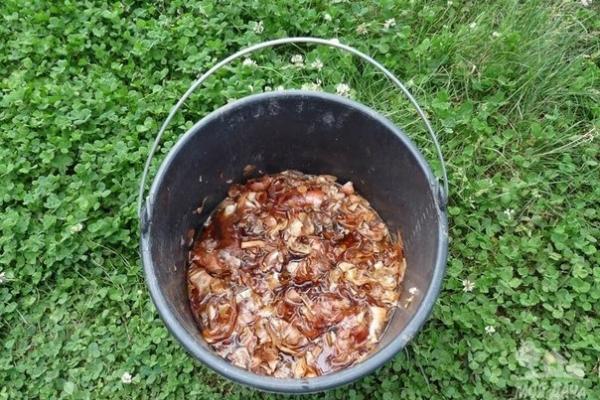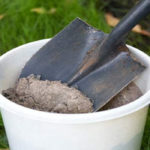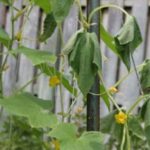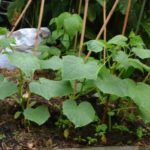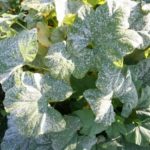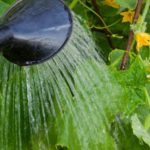Asia is considered the birthplace of onions, and the first mention of the plant dates back to the fourth millennium BC. Thanks to its beneficial properties and the ability to preserve valuable substances for a long time, onions have become in demand in Rus'. Even onion peels have found use for cucumbers. Today it is used as a fertilizer and pest control. Organic fertilizer must be properly prepared and used correctly.
After peeling the onion, do not rush to throw it away. Dry it well and place it in a fabric bag.In the future, you can make decoctions and infusions from it, which will have a beneficial effect on the cucumber harvest.
Distinctive features of onion peels
Onion peel is part of a number of organic substances. It contains microelements necessary for the development of cucumbers. Use will also help destroy pathogenic microflora. There are several ways to process cucumbers:
- spraying with decoction;
- root treatment;
- adding to the soil.
IMPORTANT! The main advantage is the 100% absorption by cucumbers of the nutrients contained in onion peels.
You can water the plantings with a decoction or infusion, feed the soil, or spray the fences. This technique is distinguished by the following:
- ease of use and preparation;
- high degree of efficiency;
- environmental friendliness of the fertilizer;
- accessibility from an economic point of view.
Treatment with onion peel decoction
Before starting work, you need to remove the dried mixture from the bag; there is no need to rinse it additionally. The cooking recipe consists of several simple steps:
- Place one handful of husks into a large saucepan or convenient cooking container.
- Pour the contents with five liters of cold water and stir.
- Put on fire and boil for 5-7 minutes.
- Cool and strain through a sieve or medical bandage.
Before starting work, the broth is diluted in two liters of fresh water. The contents are enough to treat the greenhouse - the soil will become rich in microelements and protected. This decoction can be used to water various garden plants up to three times every two weeks. Experienced vegetable growers fill a spray bottle with decoction and begin processing the cucumber vines. It is preferable to spray plants with onion peel infusion on a rainy, cloudy day or early morning hours. Before starting the procedure, water the cucumbers generously.After the event, the fruits can be safely eaten; they will not contain any harmful or hazardous substances.
The broth can be diluted with varying amounts of water depending on its purpose.
The decoction will also be useful for cucumber seedlings. Water the planting, and it will help the plants gain useful nutrients and become a preventive measure that protects young crops from pests and family diseases.
Infusion based on onion peels
To prepare the infusion you will need 100 grams of onion peels and five liters of warm water. The resulting mixture is infused for five days and filtered. A similar onion infusion is used to spray cucumber vines. The event is held three times with an interval of five days. The method allows you to rid plants of spider mites.
An infusion aged for 48 hours also has a positive effect. It is also suitable for spraying cucumbers. In greenhouses and open ground, the foliage of the plant often turns yellow. Plant crops are prone to various types of rot. In order to prevent and treat the disease, the lashes are sprayed with onion infusion 2-3 times during the summer season. For processing, it is recommended to use concentrate in a ratio of 1:2. An ordinary watering can or whisk is suitable as an irrigation tool.
The product serves as excellent protection against pests: midges, aphids and fleas. You can bring a bucket of infusion and leave it in the greenhouse and periodically sprinkle the cucumbers.
Using the product in its natural form
The beneficial ingredient is used in its natural form:
- Onion peels will be an excellent soil amendment and will help increase the quantity and quality of the harvest. The dried organic additive is added when digging the soil during the spring preparation of the beds.After this, there is no need to further treat the soil with infusion or decoction of the husk. Oversaturation of the soil can even negatively affect the taste of cucumbers.
- To rid a greenhouse or greenhouse of pests, onion peels are simply scattered around the perimeter.
- The crushed husks can be placed over the entire planting area; when watering, useful substances will automatically enter the soil.
Gardeners' opinion
Good day to all. I recommend that all beginning gardeners use a natural, environmentally friendly remedy against pests - onion peels. The fertilizer has a universal purpose. The soil is fed with it, and the plants are sprayed with its decoction and infusion. A godsend for cucumbers! They completely absorb the beneficial substances of the husk. The main thing is not to overdo it and keep it in moderation. Too much infusion or decoction will cause the cucumbers to taste bitter. Good luck!
Alexander Polikarpov, 56 years old.
Good day, dear gardeners! For many years I have been using a decoction of onion peels for spraying and watering cucumbers. Helps cope with yellowing of foliage and rotting. I water the beds up to three times per season, the effect is 100%. I also use the husks to prepare the soil. I just add it and dig up the soil. The natural supplement is an excellent feed, a source of microelements and a preventative against pests. The main thing is that you don’t need to buy any chemicals, everything is natural and safe. I haven’t found any cons for myself, the fertilizer is excellent. I recommend to everyone! Cheap and effective.
Ekaterina Varezhkina, 64 years old.

